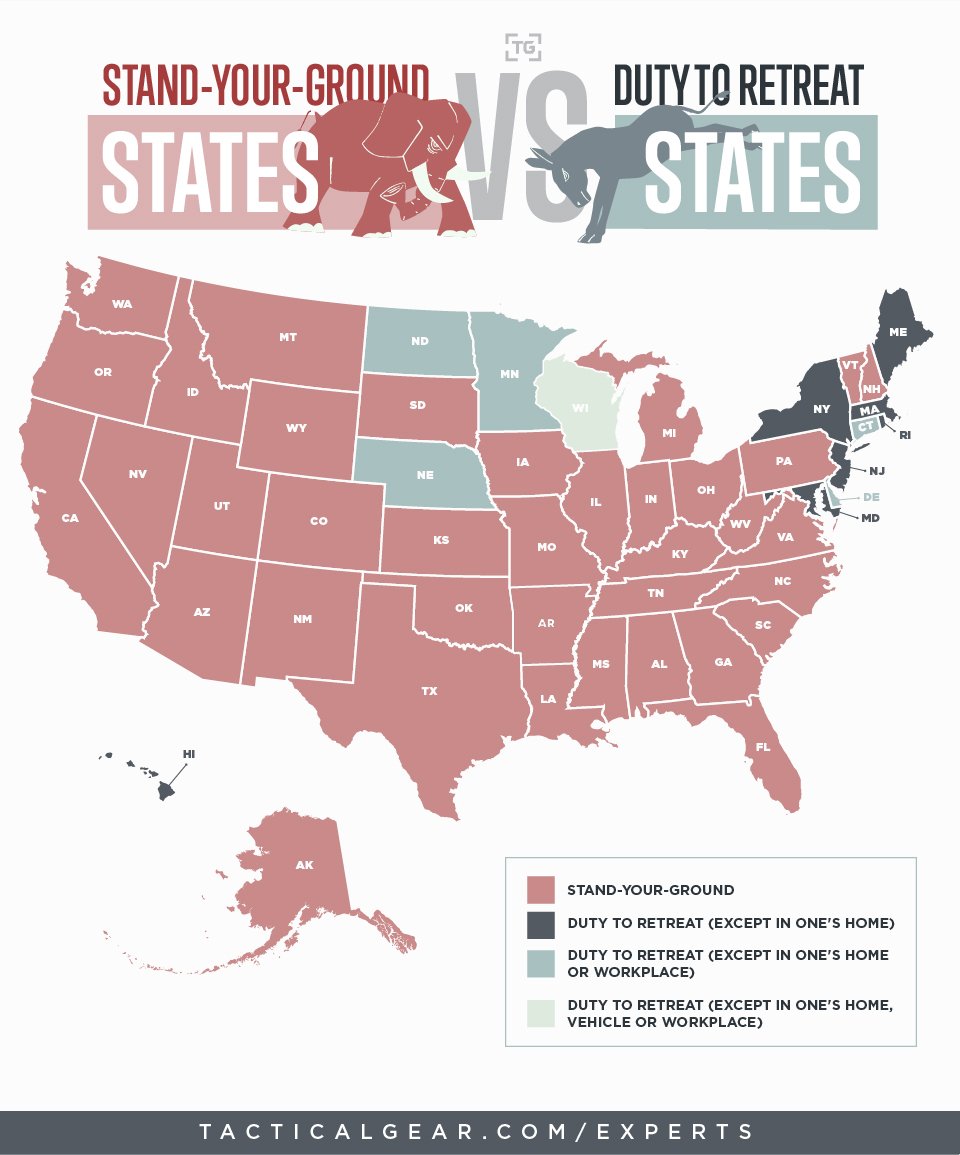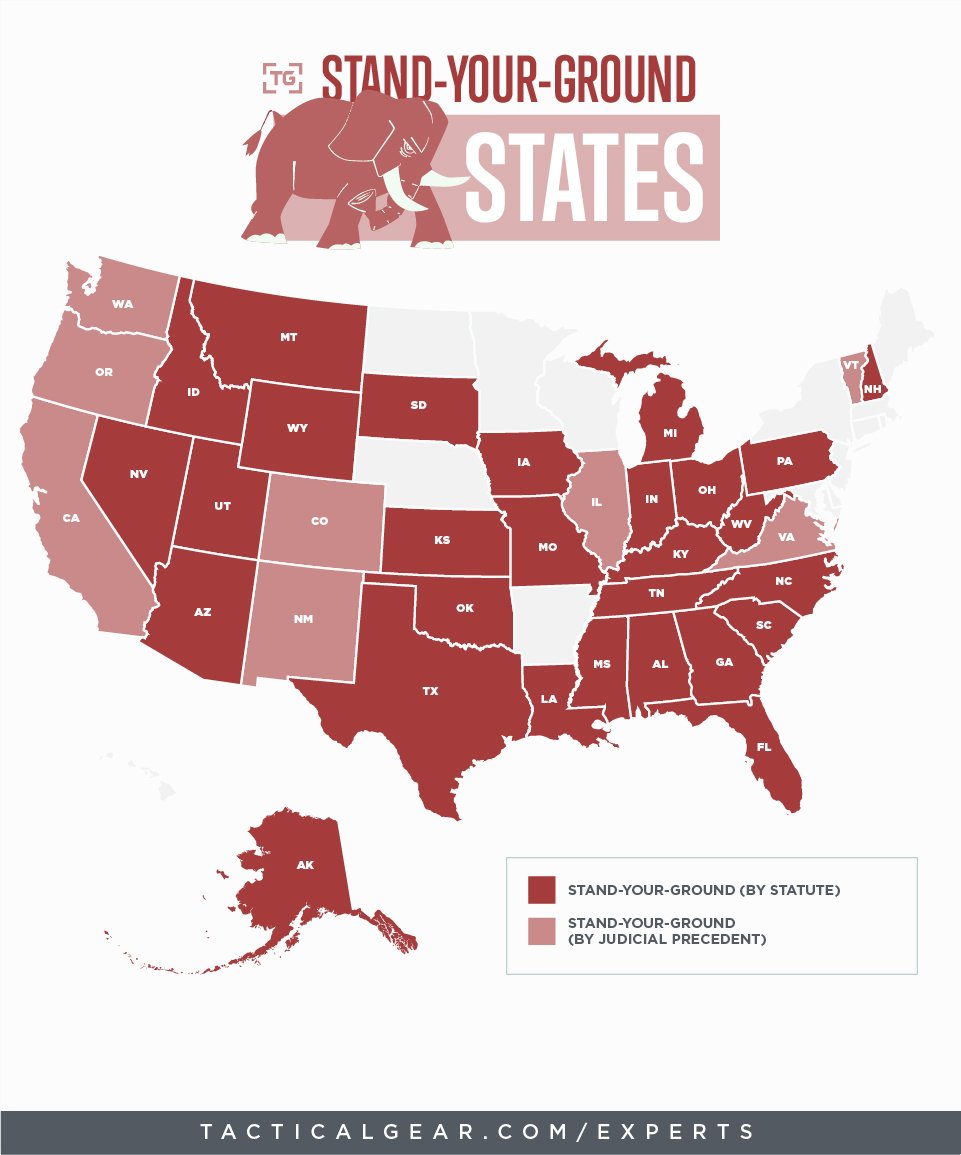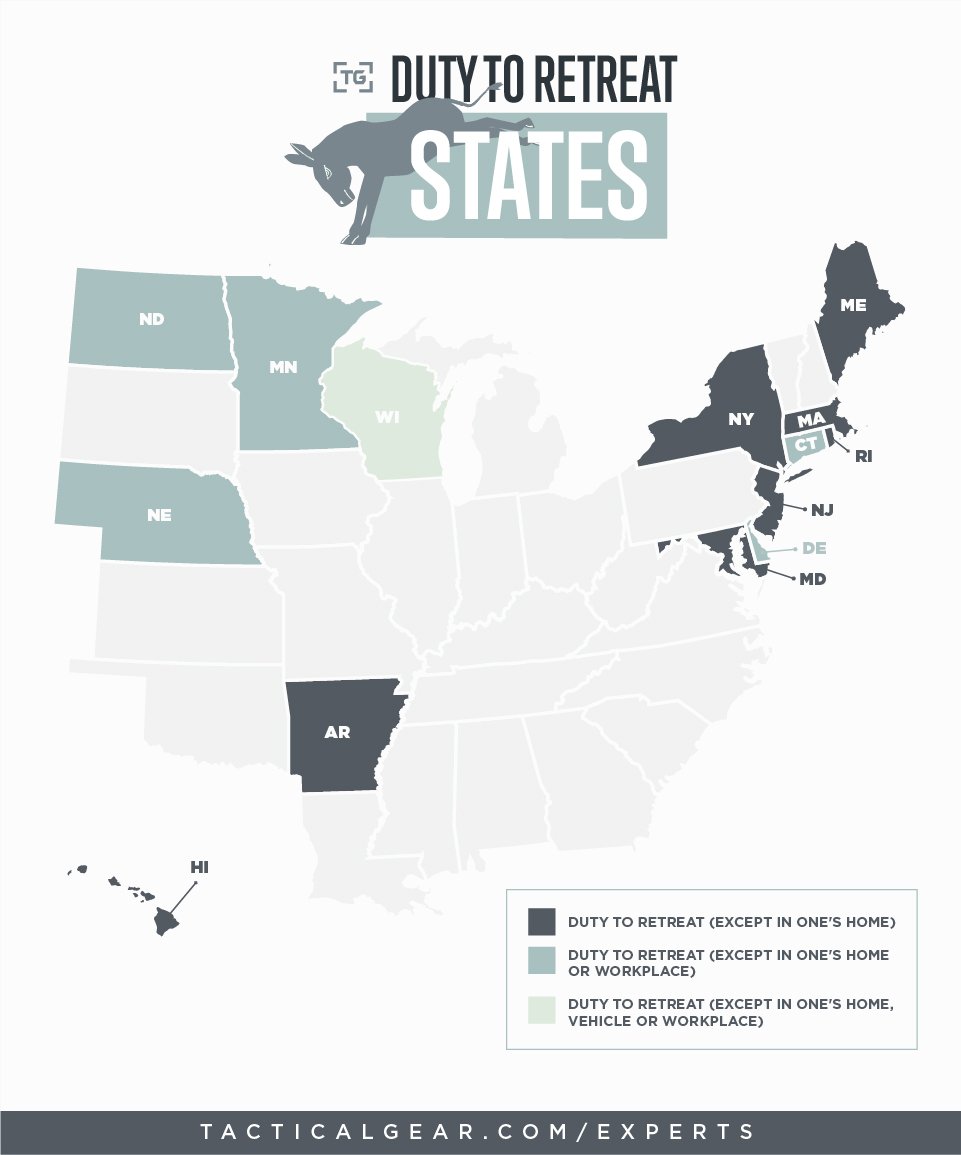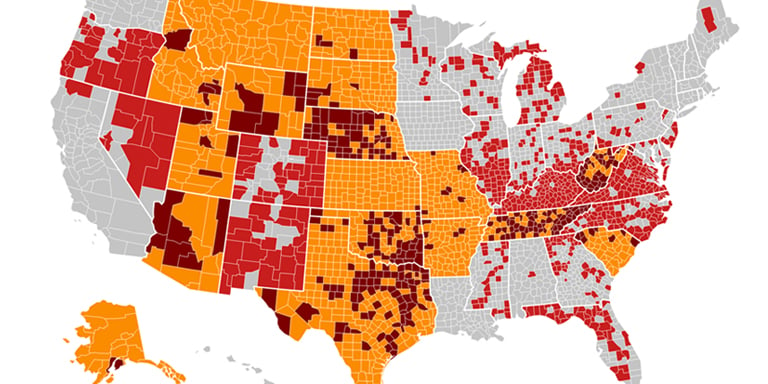Where do stand-your-ground laws apply? When do you have a duty to retreat? Is the Castle Doctrine in effect everywhere in the United States? We’re going to answer all of those questions and cover the important differences between stand-your ground laws and duty to retreat laws. We’ll also lay out the states that give you the most freedom to defend yourself and others, and the states that force you to take a more restricted approach to self-defense.

Share:
Stand-your-ground vs. Duty to Retreat
For most gun owners, responsibility and firearm safety are paramount. What happens, though, in the rare instances where a responsible, law-abiding gun owner actually does need to use their firearm in self-defense? Very broadly speaking, some states have stand-your-ground laws that allow you to defend yourself from an imminent and deadly attack, but others impose a duty to retreat, requiring citizens to keep their handguns holstered.
Though the map above may seem pretty black and white (or rather, red and blue), it’s not as straightforward as it seems. It’s important to understand that different states implement their stand-your-ground laws differently, and the Castle Doctrine (i.e. the right to defend yourself in your own home) applies to varying degrees depending on where you are. We’ll start with the red: states that allow you to stand your ground.
Updates
Arkansas
While Arkansas currently has no Stand-your-ground laws in effect and instead enforces a duty to retreat, that may soon change. On January 19th, 2021, a Stand-your-ground bill sponsored by Senator Bob Ballinger quickly passed through the Arkansas Senate. The bill is currently moving through the House, where, despite a Republican majority, the vote is expected to be very close.
Ohio
On Monday, January 4th, 2021, Ohio Governor Mike DeWine signed a Stand-your-ground bill into law. Previously, Ohioans faced a duty to retreat when encountered with a life-threatening situation in churches, businesses and other public spaces. That is no longer the case. While Ohio Democrats have been challenging the bill since its signing, the law is unlikely to change.
Stand-your-ground States

Stand-your-ground laws are pretty simple: you have the right to use deadly force when you believe it’s reasonable to do so to defend against deadly force, great bodily harm, rape or kidnapping. In stand-your-ground states, you are not limited to defending yourself on or in your own property; you may use deadly self-defense measures in public places as long as you have a legal right to be in the area in which you are defending yourself. There are a few caveats: you cannot have evoked the impending aggression out of your attacker, and you cannot have been participating in any illegal activity.
Stand-your-ground states afford legal protection in one of two different ways. A state might lay out stand-your-ground legislation by statute, or there may be judicial precedent from past court decisions on the matter.
By Statute
Any state that has stand-your-ground laws by statute means that the laws themselves were passed by that state’s legislative body. In other words, the lawmakers of that state actually took the time to write, pass and ratify laws allowing its civilians to stand their ground. States whose legislatures have passed stand-your-ground laws include: Alabama, Alaska, Arizona, Florida, Georgia, Idaho, Indiana, Iowa, Kansas, Kentucky, Louisiana, Michigan, Mississippi, Missouri, Montana, Nevada, New Hampshire, North Carolina, Ohio, Oklahoma, Pennsylvania, South Carolina, South Dakota, Tennessee, Texas, Utah, West Virginia and Wyoming.
By Judicial Precedent
While some states haven’t explicitly passed stand-your-ground laws in their legislature, their courts have decided, through the process of trying cases, that the right to stand one’s ground does apply. The precedent set by past court decisions typically and heavily influences future court decisions, so while certain states don’t actually have stand-your-ground laws on the books, they implicitly have them by way of their courts. These states include: California, Colorado, Illinois, New Mexico, Oregon, Vermont, Virginia and Washington.
Duty to Retreat States

Many states would rather its citizens avoid armed conflict, if possible. Duty to retreat states maintain that it is a person’s responsibility to retreat from a conflict when they are attacked, or defending another person who was attacked. In these states, you may not use deadly force if it is possible to retreat instead.
The use of the words “if it is possible” makes these laws highly subjective and inconsistently enforced in practice. Luckily, people living in these states still have the Castle Doctrine on their side, and it serves as the exception to the rule to retreat.
The Castle Doctrine is, essentially, a set of stand-your-ground principles that applies to your home. It comes from the old English idea that “a man’s home is his castle” — even the king could not enter an Englishman’s home without the homeowner’s permission. There are certain provisions that apply to the Castle Doctrine, but responsible gun owners should have no problem distinguishing them:
- You must believe the intruder is there to harm you
- The intruder must have tried to enter unlawfully
- You cannot have provoked the intruder into attempting to harm you
- You cannot be a fugitive yourself, or harboring fugitives
- You cannot use force on a law enforcement officer who is doing their legal duty
Among duty to retreat states, there exists a spectrum of responsibilities. Some enforce the Castle Doctrine only within one’s home, while others allow its use in a few additional locations, such as your vehicle or workplace.
Duty to Retreat Except in One’s Home
Arkansas, Hawaii, Maine, Maryland, Massachusetts, Minnesota, New Jersey, New York and Rhode Island place the biggest burden on their residents to retreat from a violent encounter. In these states, the only location in which you are allowed to defend yourself without first attempting to retreat is within your own home.
Duty to Retreat Except in One’s Home or Workplace
Connecticut, Delaware, Nebraska and North Dakota allow a bit more freedom for its residents to defend themselves. They still have the duty to retreat in public places and in their vehicle, but if they are in their home or workplace, the Castle Doctrine applies.
Duty to Retreat Except in One’s Home, Vehicle or Workplace
Wisconsin imposes the smallest onus on its citizens to retreat of any state that doesn't have stand-your-ground laws. The Castle Doctrine applies in your home, your vehicle and your workplace.
While opinions on this topic continue to be politically charged and often controversial, understanding what your state expects of you in a self-defense situation matters. Your state’s laws may frustrate you, and you may disagree with them, but as a responsible gun owner, it’s crucial that you adhere to them. After all, if you’re forced to use your weapon to defend yourself in a life-threatening situation, the last thing you’ll want is to be found criminally liable. Make sure you understand your state’s laws and follow them closely, and most importantly, stay safe.
Note: The information in this article is intended for educational purposes only. It is subject to change, and should not be construed as official or legal advice.
Did you find this article helpful?








